Car insurance. If you are like most of us, you probably have an unrecognizable bill related to insurance that appears out of nowhere that says car insurance. I understand it can be infuriating when the premiums seem to go higher and higher, especially when there is a need to control the spending.
Guess what? I have good news! There are helpful and actionable steps you can take to lower the car insurance premiums without compromising the value of the coverage provided. I have created this simple guide to share the best actionable pieces that helped me save money on car insurance so that you can leverage them too.
Instead, keeping in mind the new starters and long term payers of premiums, I’m hopeful these tips will help users make intelligent decisions predicting protective coverages leading to increased cash in hand.
Key Takeaways
Let us first state the summary before diving deeper into the article’s content. Remember the key points in focus.
- Maintaining a clean and safe driving record positively impacts the premiums one has to pay for insurance.
- Never go with the first insurance quote offered to you
- Always shop around to ensure you save the most money as per your individual needs and situation in life.
- Increasing your deductibles tends to lower your monthly payments while requiring higher contribution in case of a claim.
Understanding How Insurance Companies Set Your Premiums
Before trying to lower their premiums, many people find it helpful to first understand how insurance companies set the cost and price for payment. Its insurance companies turn out to be more complicated than most people think. Insurance companies rely on two major categories of data to determine the cost of the premium;
Type 1 data contributes validity while Type 2 is domain specific including all relation factors. For example the type of vehicle, history and symbiotic relationship with insurance companies as well as background information candid to the motorist including any relevant clicks and app purchases which then moves us to our mobile social behavior.
There are unrestrictive application settings and policies one can abide by to ensure that their documents are marked clean. Most insurance companies offer lower premiums annually as an incentive to maintain lower claim rates.
Your Driving Record Speaks Louder Than You Think
The driving record of an individual is an integral aspect. Driving record includes ticket history, insurance history, associated fees, renewals, as well as look back periods. By and large driving tendencies which proactively promote better habits like maintaining prudence mileage can indeed further bone beneficial down term on premiums.
What You Drive Matters a Lot
I personally looked deeper into my insurance premiums and discovered the unprecedented impact a car can have on insurance costs. The companies themselves consider some vehicles as more susceptible to theft, accidents, or even costly repairs. To illustrate this point, my cousin’s sports car was insured for almost double compared to my modest sedan. Insurance costs are determined by the safety features, repair costs, and theft rates associated with the vehicle
Location Is Key
Living in a dense area with heavy traffic or crime rates will likely increase your premiums when compared to someone living in a quiet suburb. Away from the city center, I saw a small reduction in my premiums after moving to a quieter neighborhood for a year. Your car insurance provider estimates the risk of your car being damaged or stolen based on your zip code.
How Much You Drive Makes a Difference
Annual mileage of 30,000 vs 5,000. Both scenarios tell an insurer a different story that impacts premiums. Vehicle downtime ensures less wear and tear, and the chances of accidents. Drivers who spend less time on the road typically receive better rates.
Your Credit Score Can Impact Your Premiums
I was equally surprised this was a factor. Insurers assigning a risk to a client often does a credit check. Better credit translates to lower premiums in most cases. Poor Credit? Focus on raising it and enjoy reduced insurance rates over time.
Practical Ways You and I Can Lower Our Car Insurance Premiums
Okay, this is the moment which is most awaited. It is withdrawing those high premiums and saving money instead. I want to tell you how it was for me as well as what is reasonable for you.
Shop Around Regularly and Don’t Settle
Let me go ahead and mention this: let go of the traditional way of trusting the first quote you receive. Different businesses view risk along different lines, so one company might charge you 20 percent lower than the other for the same coverage.
I made it a habit to shop around every year or two. At times switching companies i was able to save hundreds of dollars. It is easier than ever with online tools – just provide some basic info and multiple quotes are provided in no time. Just remember to check not only the price but also the details of the coverage.
Raise Your Deductible to Lower Monthly Payments
Initially, when I noticed my deductible was sitting at $500, I did not pay much attention to it. But after I increased it to $1,000, my premiums dropped significantly. This is because a higher deductible signifies that you are ready to pay more out-of-pocket before insurance starts covering expenses. This lowers the insurer’s risk, costs, and monthly expenses for the consumer.
But there’s a tradeoff; in case of an accident, you’ll be paying more upfront. Be sure to have some savings available to cover the increased deductible amount in case the need arises.
Take Advantage of All Available Discounts
Whenever making an insurance claim, most people tend to overlook certain available discounts. This ultimately leads to them not getting the most out of their insurance provider. In my research, I came across certain discounts such as good driver and GPA discounts, multi-policy bundling discounts, and discounts pertaining to safety features installed in one’s car.
Once I reached out to my insurance provider, they were able to find three different discounts that I qualified for which reduced my annual premium by hundreds. Within the provided example, it never hurts to ask your agent to examine your policy and see where additional savings can be applied.
Bundle Your Insurance Policies for Bigger Savings
In the case where you hold renter’s insurance or even a homeowner’s insurance policy, inquire about possible bundles. This tactic often works in the user’s favor since insurance companies love it when their clients combine multiple policies with them. When this occurs, the insurance companies tend to give quite an appealing discount.
Along these lines, I also combined my renter’s insurance with my car insurance and saved over $150 each year. On top of that, there is an increase in simplicity when it comes to managing payments and claims because everything is now under one provider.
Maintain a Clean Driving Record
Although this does come off as obvious, the safest way individuals can preserve low premiums is by driving safely, avoiding tickets, and steering clear of accidents.
If unfortunate incidents like accidents or receiving a ticket are part of your past, worrying won’t help. Most insurers have accident forgiveness policies, and some will automatically lower your rates after a few years of clean driving. It may also be helpful to take defensive driving courses. I took one a few years ago and it provided me with a small discount on my premium.
Consider Usage-Based Insurance Programs
Insurance is undergoing rapid changes due to technological advancements, which are also affecting car insurance fees. Some providers have mobile applications or tools that can be placed in your car to monitor your driving. They evaluate driving speed, braking, and the time of day to assess safety.
I was a bit skeptical at first but decided to try it. The discount I got for driving safely — about 10% off my premium — made it worthwhile. Moreover, it made me more aware of my driving habits.
Drive Less Whenever Possible
Reduction in driving seems to be directly correlated to greater rewards from the insurance company. If you are able to carpool, use public transportation, or work in a hybrid model, your company might qualify for low mileage discounts.
If you do not drive frequently, it would be wise to inquire about pay-per-mile insurance. This plan is financially advantageous for low-mileage drivers since you only pay for the miles driven.
Keep Your Credit Score Healthy
Your credit score could affect you for much more than just loans and credit cards. It now also increases or reduces the premium you’ll pay for car insurance.
If your credit is bad, start taking actions to improve it (if your bills can be paid, make sure to pay them on-time, maintain low balances, and don’t apply for lots of new accounts simultaneously). In the long term, having good credit means the potential for better insurance rates.
Why Reviewing Your Insurance Policy Annually Is Important
As an example, I often see people forgetting to review their insurance policy after purchasing it. This is an issue because Insurance companies frequently change their rates and offerings. Features that worked for you last year might be worse than other options available today.
As part of your habits, review your policy six to eight weeks prior to renewal and take this time to shop around and call your agent to make any necessary coverage adjustments. In my case, I’ve simply inquired for new discounts to be issued or changed the reported safety features of my car and ended up saving a lot of money.
My Opinion| Taking Control of Your Car Insurance Premiums
There is no doubt that insurance is a necessary expense for individuals. However, every driver is aware that vehicle insurance comes with a hefty price tag. While there are certainly costs associated with owning, maintaining and operating a vehicle, vehicle insurance does not have to be one of them.
In today’s economy, many people incur unnecessary premiums. Take into consideration the monthly utility bills. If an individual is suffering from costly bills, the common course of action is to either analyze the service package or switch to a new provider entirely.
Do not wait for the end of the month. Pick up the phone and contact your insurance provider. For many people, insurance headaches can be easily eliminated through a simple phone call. Trust me, your vehicle and wallet will greatly appreciate it.

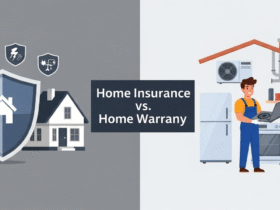









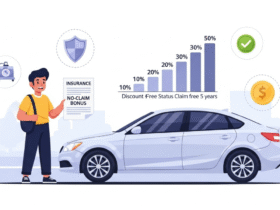
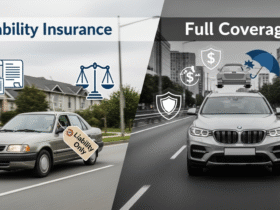

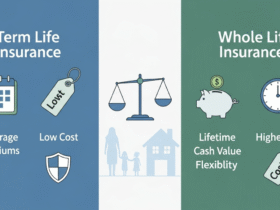











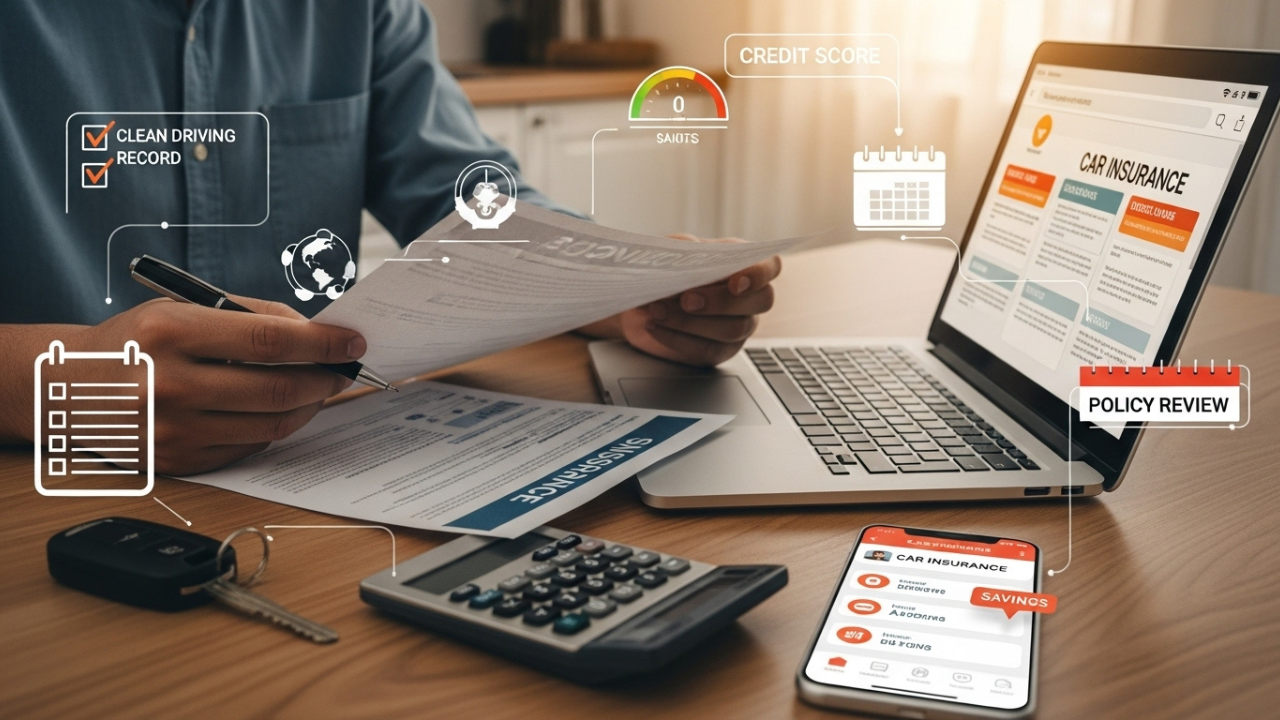
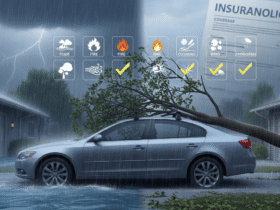




Leave a Reply